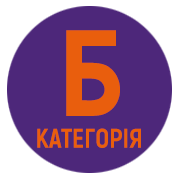THE FORMATION OF PHYSICAL EDUCATION VALUES AND MOTIVATION TO PROFESSIONAL SELF-IMPROVEMENT
DOI:
https://doi.org/10.32782/2522-1795.2022.11.25Keywords:
values, physical culture, self-improvement, professional-applied physical training, studentsAbstract
Purpose: to theoretically substantiate and analyze the problems of forming the values of physical culture for professional and applied self-improvement. Materials and methods of research: The theoretical analysis and systematization of literature sources on the research topic allowed to clarify the conceptual apparatus, formulate the purpose and objectives of the study, to clarify the problem area of values of physical culture and motivation for professional self-improvement. The application of the method of analogy of the studied patterns and system analysis allowed to determine the general trends in the formation of motivation for professional and applied self-improvement. Results: the classification of the value potential of physical culture is characterized, the axiosphere of physical culture is analyzed, the conceptual apparatus of physical education in the professional and personal development of the future teacher is determined, the value attitude to one’s physical condition is analyzed, the process of students’ involvement in physical culture is analyzed. cultural potential of the individual, worldview, spirituality, active life position. The formation of the values of physical culture to professional and applied self-improvement while studying in a higher education institution acts as a socio-cultural process, which includes: the formation of the attitude to the assignment of cultural values; orientation in cultural (cognitive) values; formation of the purpose of cultural (educational) activity; mastering the spiritual values of society; formation of a holistic (value) picture of the world; orientation in universal values. The physical culture of the individual, which is characterized by the level of self-awareness, education; organization of personal time, aesthetic taste, properties of movements and body construction; a certain type of motor activity, based on value orientations, knowledge, beliefs Conclusions: the classification of value potential and axiosphere of physical culture, analyzed the basic concepts of physical education professional and personal development of future teachers.
References
Безверхня Г. В., Гончар Г. І. Мотиви і інтереси студентів факультету фізичного виховання до занять спортом. Спортивний вісник Придніпровʼя. 2012. № 1. С. 23–28.
Ильин Е. П. Мотивация и мотивы. Питер, 2002. 508 с.
Ільченко А. І. Ціннісне ставлення особистості до різних складових фізичної культури. Теоретико-методичні проблеми виховання дітей та учнівської молоді. 2011. С. 431–438.
Козак Є. П. Формування ціннісного ставлення до фізичної культури у студентів вищих педагогічних навчальних закладів : автореф. дис. на здобуття наук. ступеня канд. пед. наук: 13.00.07. Київ, 2011. 24 с.
Крамаренко А. М. Професійно-педагогічні цінності майбутніх учителів початкової школи у контексті болонського процесу. Теорія і практика підготовки майбутніх учителів до педагогічної дії : Матеріали Всеукраїнської науково-практичної конференції з міжнародною участю, 20–21 травня. 2011. Житомир. ЖДУ ім. Івана Франка, 2011. 236 с.
Круцевич Т., Томенко О. Неспеціальна фізкультурна освіта учнівської молоді: концептуальні підходи до розгляду. Теорія і методика фізичного виховання і спорту. 2009. № 3. С. 48–51.
Круцевич Т. Ю., Марченко О. Ю. Сформованість цінностей індивідуальної фізичної культури студентів різних відділень вузу. Спортивний вісник Придніпровʼя. 2008. № 3–4. С. 103–106.
Марченко О. Ю. Формування ціннісних категорій особистої фізичної культури у студентської молоді : автореф. дис. на здобуття ступеня канд. наук з фіз. вих. і спорту: 24.00.02. Дніпропетровськ, 2010. 20 с.
Плачинда Т. С. Педагогічні умови стимулювання активності студентів вищих педагогічних навчальних закладів до фізкультурної діяльності : автореф. дис. на здобуття наук. ступ. канд. пед. наук: 13.00.04. Кіровоград. 2008. 30 с.
Товт В., Михайлович С. Мотиваційний компонент фізичного виховання студентської молоді. Молода спортивна наука України. 2002. Вип. 6. Т. 1. С. 406–409.
Федоренко Є. О. Формування мотивації до спеціально-організованої рухової активності старшокласників : автореф. дис. на здобуття наукового ступеня канд. наук з фізичного виховання і спорту. 24.00.02. Дніпропетровськ. 2012. 20 с.
Цибульська В. В. Формування мотивації до професійно-прикладної фізичної підготовки студентів педагогічних спеціальностей на різних формах навчання : монографія. Умань : ВПЦ «Візаві», 2016. 252 с.
Boichу J. C., Sarrazin, P. G., Grouzet, F. M., Pelletier, L. G. Students’ motivational profile sin physical education and achievement outcomes: Aself-determination the oryperspective. Journal of Educational Psychology. 2008. Vol. 100. Р. 688–701.
Fyshev Yu. O., Lutsenko L., Shcherbak R. M. Assessment of Motivational Factors for Physical Training of Students. Slobozhansky Scientific and Sports Bulletin. 2012. № 3. P. 164–169.
Halyna Bezverkhnia, Tetiana Fedirchyk, Viktoria Tsybulska, Mykola Maievskyi, Tetiana Osadchenko, Serhii Ilchenko, Anna Hakman. Formation of motivation for professional and applied physical training in future elementary teachers. Journal of Physical Education and Sport. 2019. Vol. 19 (Supplement issue 2), Art 45, Р. 299–304 (DOI: 10.7752/jpes.2019.s2045).
Ingledew D., Markland D. The role of motives in exercise participation. Psyhology and Health. 2008. Р. 807–828.
Moskalenko N. V., Sychova T. V. Motivational Priorities of Students in Physical Education and Sports. Sports Bulletin of the Dnieper Region. 2012. № 2. P. 10–14.
Downloads
Published
How to Cite
Issue
Section
License

This work is licensed under a Creative Commons Attribution-NonCommercial-NoDerivatives 4.0 International License.











